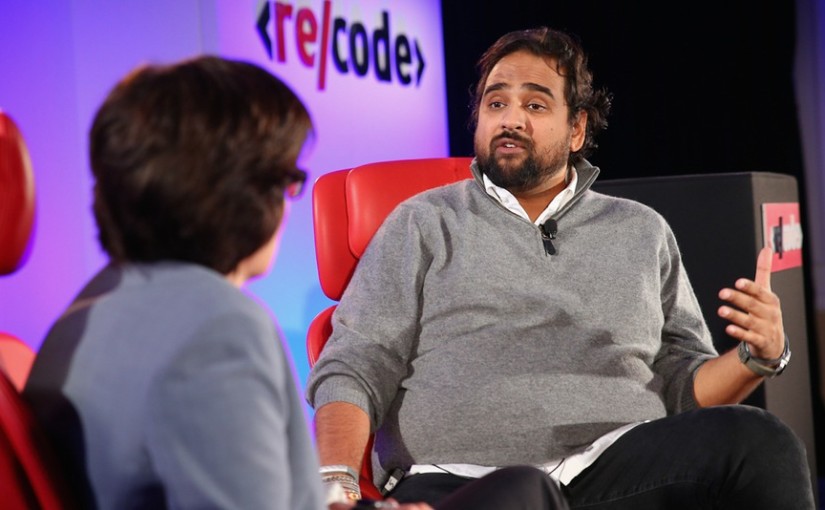Wearables have made people obsessed with tracking their personal data — from fitness to sleep to even sex. We’ve been retrieving this information externally, but can data also come from within?
At the Code/Mobile conference, Hosain Rahman, CEO of leading wearables company Jawbone, said they’ve looked into ingestibles as the future of wearables. They’re sensors that “pass through you” and collect data.
SEE ALSO: 14 health and fitness wearables and gadgets worth giving
Even though the idea sounds like the catalyst for a dystopian sci-fi movie, the concept isn’t all that unreasonable. A majority of Rahman’s talk focused on the role and challenges of wearables — the most basic challenge being actually getting people to wear them, and not only that, but also wear them consistently
If you have to wear it 24/7 to get the most out of data, battery life becomes an issue. Fashion also changes things, Rahman said. A wearable that looks good for day might not work for night, and what you wear in the summer isn’t the same in the winter. ” “The real role of wearables that no one talks about is all these smart things around you have no idea what’s happening with you” Rahman said. “I always use the example of, no matter how smart my thermostat is, it has no idea if I’m hot or cold.”
Rahman believes future data trackers can do much more, especially when it considers the user’s environment, i.e. the ability to turn off the car if it senses your blood alcohol content is too high to drive. Even more so, he sees wearables and smart-home applications converging. “Our view of the in-home [Internet of Things] stuff is kind of a mess,” Rahman said. “Everything’s got an app, none of it talks. It’s super confusing to set up. What I really want it to do is know I’m in this mood, and the lights should go here, or that i’m in this state, and I want the temperature there or I’m going to bed and I want the temperature to go here. I think wearables are going to be at the center of that, and they’re going to make all these things smart.”
Swallowable data trackers have actually become a reality, though. The FDA approved Proteus Digital Health’s ingestible sensor in 2012, and in July, the FDA approved its use to measure medical adherence. When swallowed, it sends data to an adhesive patch worn on the torso and shares that information to you on your smart device. Last year, the FDA also approved PillCam, a tiny camera that takes internal images of patients who can’t have a complete colonoscopy. Google also started developing a pill that detects diseases.
But these examples only exhibit innovation in the medical realm. We’ll have to wait and see if consumers can snag some ingestibles from their local Best Buy.
Have something to add to this story? Share it in the comments.
